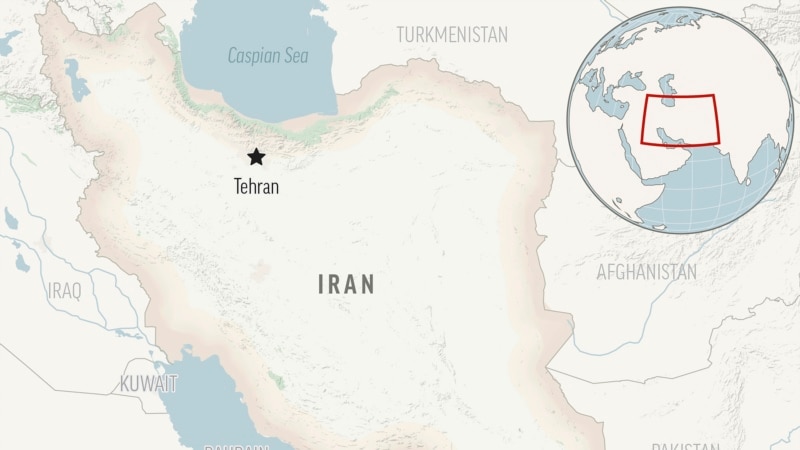
Iranian commentators warned Tuesday of a U.S. military retaliation after Washington pledged a “very consequential” response to troop deaths, but largely agreed that a full-blown war was not in the offing.
U.S. President Joe Biden blamed “radical Iran-backed militant groups operating in Syria and Iraq” for Sunday’s drone strike on a remote Jordan desert base near Syria and Iraq that killed three U.S. soldiers.
The first American military deaths in an attack since the October 7 outbreak of the Israel-Hamas war have ratcheted up tensions between the long-time enemies at the start of a U.S. election year.
Longtime foes Washington and Tehran have both been at pains to stress they do not want war, so Biden’s warning has left Iranians guessing about the next move.
“The possibility that Biden will order direct attacks on Iranian targets cannot be ignored,” political analyst Ahmad Zeidabadi wrote in the Ham-Mihan newspaper.
But he said any U.S. attacks would more likely target “the bases of Iranian forces in other countries.”
In a sign of heightened tensions, Iran’s rial slipped Tuesday to an all-time low of around 580,000 to 600,000 to the U.S. dollar on the black market.
The reformist Etemaad Daily newspaper also said it was “possible” the Biden administration — under political pressure from the Republicans — “will target limited but strategic targets inside Iran.”
“This scenario may spell the end of diplomatic efforts between Tehran and Washington,” it said.
Some of Biden’s Republican rivals have urged a direct attack on Iran, while the president said Tuesday that “a wider war in the Middle East” was “not what I’m looking for.”
Iranian officials were quick to deny any links to the Jordan attack, reiterating that Tehran also opposes an “expansion” of the conflict in the region.
Warning against ‘vengeance’
Iran’s Foreign Minister Hossein Amir-Abdollahian said Tuesday the solution to the crisis must be “political” and wrote on X that “diplomacy is active in this direction.”
China and Russia, which have friendly ties with Iran, urged de-escalation and restraint, and Beijing warned against a “cycle of retaliation” in the Middle East.
Another reformist newspaper, Shargh, called a direct confrontation “unlikely” and said “Tehran and Washington have already shown in the past their ability to contain direct conflicts.”
The Iran Daily, in a more strongly worded editorial, warned that Biden must “not be duped into a direct military attack on Iran to take vengeance for a strike launched by a third party.”
“Any insane move will definitely instigate a proportionate response from Iran which could lead to a full-blown war,” it said.
The United States and Iran have been bitter enemies since the 1979 Islamic Revolution.
Fears about Iran’s nuclear program have since led to punishing international sanctions, while U.S. ally Israel has fought a shadow war of killings and sabotage with Iran.
The United States and Israel accuse Iran-backed militant groups of fighting proxy wars in Lebanon, Iraq, Syria and Yemen, with the support of the Islamic Revolutionary Guard Corps.
In 2020, former U.S. President Donald Trump ordered the killing of revered Guards commander Qasem Soleimani in Baghdad.
Violence across the region has spiked since Palestinian militant group Hamas attacked Israel on October 7, sparking the bloodiest-ever Gaza war.
Iran has voiced support for Hamas and its allies — Hezbollah in Lebanon and Yemen’s Houthis — but insisted that the militant groups are acting independently.
It has also accused the United States of being an accomplice to Israel’s “genocide” in Gaza.
British ambassador summoned
The killings in Jordan follow a spate of attacks on U.S. forces in nearby Iraq and Syria, many claimed by the Iran-backed alliance Islamic Resistance in Iraq.
Tehran on Tuesday summoned the British ambassador to protest an unspecified “accusation” against the Islamic republic, after London said Iran-aligned groups were behind the Jordan attack.
Britain, along with the United States, also imposed sanctions on a network they allege targets Iranian dissidents.
Washington has repeatedly accused Iran of involvement in Red Sea attacks by Houthi rebels and of “actively facilitating” attacks on U.S. forces in other parts of the Middle East.
Iran’s ambassador to the United Nations, Amir Saeid Iravani, again stressed Tehran’s position in a letter published by the official IRNA news agency.
He wrote that no group affiliated with Iran’s armed forces, “whether in Iraq, Syria or elsewhere … operates directly or indirectly under the control of the Islamic Republic of Iran or acts on its behalf.”
The Etemaad newspaper judged that Washington “has no choice but to increase pressure” on Israel to end the Gaza war.
The conservative Javan newspaper warned that U.S. involvement in a regional conflict to support Israel would be a “perfect example of betting on a losing horse.”
